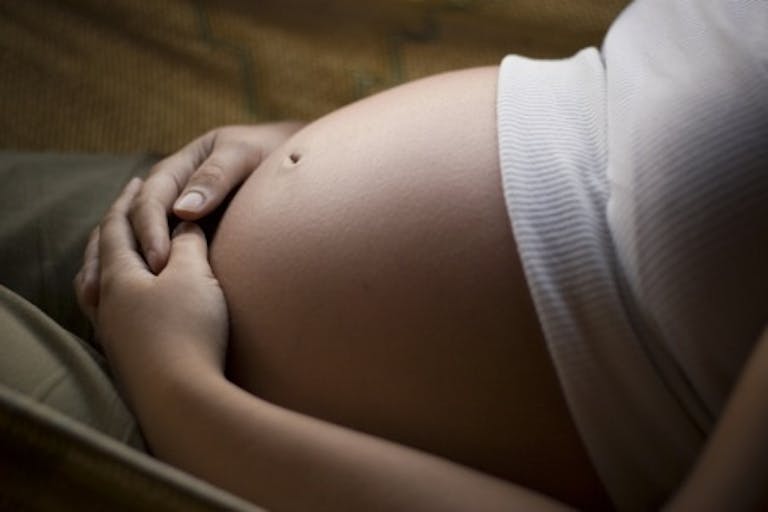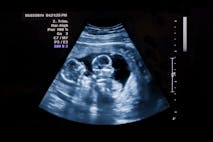
Study: Nearly half of women suffer moderate to high distress after abortion
Michael J. New
·
Analysis·By Rachael Denhollander
Abortion advocates refuse to acknowledge documented abortion risks
In the wake of Jennifer Morbelli’s recent and tragic death, one mantra that is certain to be repeated often and loudly is that complications from an abortion are rare events, and that this “choice” really is needed for the health of the mother. “Health” will be defined, per the infamous Doe v. Bolton court ruling, to include anything from the physical to the emotional to the psychological, at the physician’s sole discretion.
In an empirical, science-based society like America, one would presume that there would be some evidence for this assertion that abortion is better for the mother’s emotional, physical, and mental well-being, particularly given that abortion is such a hotly contested issue. Yet, despite the fact that both Roe v. Wade and Doe v. Bolton took place in 1973 and had massive implications on state law, individuals, and of course the unborn, it is both disheartening and shocking to note that scientific literature or controlled studies of the effects of abortion on women were almost nonexistent until nearly 30 years after the precedents were handed down. Virtually no scientific evidence at all – until the start of 2002, that is – when several large, record-based studies began to be published on the topic. What those studies showed is something all pro-life advocates need to know.
A significant increase in suicide rates – anywhere from a 2.5% increase to a suicide rate six times higher than women who have not had an abortion.
A three times higher risk of death from abortion than from birth.
Health complications, including:
Article continues below
Dear Reader,
In 2026, Live Action is heading straight where the battle is fiercest: college campuses.
We have a bold initiative to establish 100 Live Action campus chapters within the next year, and your partnership will make it a success!
Your support today will help train and equip young leaders, bring Live Action’s educational content into academic environments, host on-campus events and debates, and empower students to challenge the pro-abortion status quo with truth and compassion.
Invest in pro-life grassroots outreach and cultural formation with your TRIPLED year-end gift!
A 60% greater chance of miscarrying future pregnancies and a significantly increased risk of ectopic pregnancies, infertility, hysterectomies, stillbirths, miscarriages, and premature births.
Immediate health risks from abortion complications, with a 10% likelihood of suffering immediate complications and 31% likelihood of general health complications following the abortion.
Massive increases in depression, including:
A New Zealand study showing that 42% of women with a history of abortion had experienced major depression in the last four years – nearly double the rate of women who had not been pregnant, and 35% higher than those who carried to term.
A federally funded, U.S.-based study which found a 65% higher risk of clinical depression in women who had abortions, after controlling for age, race, education, marital status, history of divorce, income, and prior psychiatric state.
A British study finding that women who abort have a significantly higher risk of clinical depression, compared with women who carry their first unintended pregnancies to term – a risk which continues for at least 8 years.
A California-based analysis of Medicaid records showing significantly more treatments for psychiatric care for patients who undergo abortion.
A California-based study, published in Canada, finding that women who abort their pregnancies are 160% more likely to be hospitalized for psychiatric treatment in the first 90 days following the abortion, when compared to women who deliver their babies. This study also found that psychiatric treatment rates remained significantly higher for at least four years.
A nationally representative U.S.-based study finding that adolescent girls who abort unintended pregnancies are five times more likely to seek subsequent help for psychological and emotional problems than their peers who carry unintended pregnancies to term. This was found after controlling for previous mental health history, family situations, and other factors that might influence mental health.
Considerable increases in trauma and trauma-related disorders, with:
A study finding that 65% of American women who had abortions experienced multiple symptoms of post-traumatic stress disorder (PTSD), which they attributed to their abortions.
A New Zealand study finding a significant increase in anxiety disorders and suicidal behaviors, compared to women who did not have abortions.
An additional study finding a 30% higher risk of generalized anxiety disorders.
A study of women with no previous history of sleep disorders, which found that women who undergo abortions are nearly twice as likely to be treated for post-abortion sleep disorders than women who deliver.
A study finding that teens who abort are three times more likely to have difficulty sleeping than teens who carry their pregnancies to term.
Significantly higher rates of substance abuse, with studies finding:
Women who abort are five times more likely to be involved in drug and alcohol abuse.
More frequent and recent use of alcohol, marijuana, and cocaine use for women who abort unintended pregnancies as compared to women who gave birth after an unintended pregnancy. This trend remained true for the full four years of the study.
Women with a history of abortion who then carry a later pregnancy to term are five times more likely to use illicit drugs, and two times more likely to use alcohol, during their pregnancies, as compared to first-time mothers who have not had an abortion, putting their unborn children at risk of birth defects, low birth weight, and death.
Substantially higher likelihood of smoking, drinking alcohol, or using marijuana, cocaine, or other illegal drugs during the first pregnancy carried to delivery, when compared to other first-time mothers who had suffered miscarriages or never had an abortion.
A nine-fold increase in teenage use of marijuana for girls who have had an abortion, compared to teenagers who have not.
Abortion advocates can claim whatever they choose, but the evidence is crystal-clear and is stacking up fast – abortion may be done for a lot of reasons, but it certainly isn’t done for the health of the mother.
Live Action News is pro-life news and commentary from a pro-life perspective.
Contact editor@liveaction.org for questions, corrections, or if you are seeking permission to reprint any Live Action News content.
Guest Articles: To submit a guest article to Live Action News, email editor@liveaction.org with an attached Word document of 800-1000 words. Please also attach any photos relevant to your submission if applicable. If your submission is accepted for publication, you will be notified within three weeks. Guest articles are not compensated (see our Open License Agreement). Thank you for your interest in Live Action News!

Michael J. New
·
Analysis
Cassy Cooke
·
Analysis
Cassy Cooke
·
Analysis
Bridget Sielicki
·
Analysis
Cassy Cooke
·
Analysis
Cassy Cooke
·
International
Rachael Denhollander
·
International
Rachael Denhollander
·
Human Rights
Rachael Denhollander
·
Human Rights
Rachael Denhollander
·
Investigative
Rachael Denhollander
·